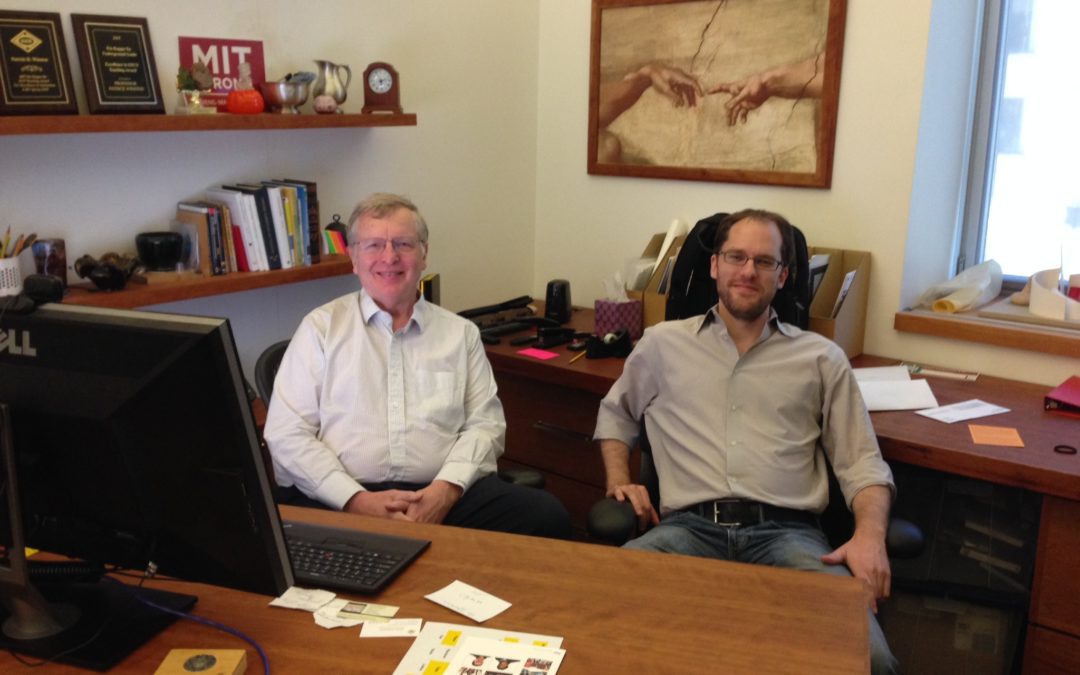
Apr 19, 2021 | AI Bookie, Columns
Chris Welty, Google Research, USA
Praveen Paritosh, Google Research
Kurt Bollacker, LongNow Foundation
The AI bookies have spent a lot of time and energy collecting scientific bets from AI researchers since the birth of this column three years ago. While we have met with universal approval of the idea of scientific betting we have likewise met with nearly universal silence in our acquisition of bets. We have collected only a very few in this column over the past two years. In our first column we published the “will voice interfaces become the standard” bet, as well as a set of 10 predictions from Eric Horvitz that we proposed as bets awaiting challengers. No challengers have emerged.

Apr 19, 2021 | AI Education, Columns
By Michael Wollowski, Rose-Hulman Institute of Technology, USA
In this panel, AI faculty with experience teaching online and blended classes were asked to share their experiences teaching online classes. The panel was composed of Ashok Goel, Georgia Institute of Technology, Ansaf Salleb-Aouissi, Columbia University and Mehran Sahami, Stanford University. The panelists were asked to describe which tools and methods work well to help instructors engage and bond with students online. They were furthermore asked to share their insights into which components of a course can be done best online and which ones are best accomplished in person. The panel took place as part of the 2021 Symposium on Educational Advances of AI, which was collocated with AAAI-21. The panel was attended by about 55 people and it included a vigorous Q/A portion.

May 18, 2020 | Columns, In Memoriam
By Mark Finlayson, Florida International University
“What do you say?” Patrick’s enunciated greeting would ring out, ritual-like, as I presented myself at the threshold to 32-251. His blond hair poking up from behind his monitor, I could hear in his voice whether he wore his characteristic wry smile. My visits were unscheduled: I would come over from my neighboring office when I saw his light on and door open. I spoke with him almost every work day for nearly twelve years, in conversations long and short, mostly about research: science, engineering, academics, artificial intelligence, cognition, or the latest paper or proposal we were writing.

May 5, 2020 | Columns, Reproducible AI
by Odd Erik Gundersen
The reproducibility crisis is real, and it is not only psychology that has to deal with it. All sciences are affected. The field of AI is not an exception.
May 5, 2020 | Columns, In Memoriam
by Kenneth D. Forbus, Northwestern University
I first met Patrick when I started working at the MIT AI Lab in Fall of1973. I was a freshman, doing a project with David Marr that was a step on the path to the Primal Sketch. It was like a dream come true to work there. At the time, Patrick had just taken over as director, despite being an assistant professor. This was an unusual burden, but he handled it well, ensuring that it ran more smoothly while maintaining an exciting intellectual environment.

May 5, 2020 | AI Education, Columns
By Nicola Capuano & Santi Caballe
In his annual survey, the learning technology expert Donald Taylor asks more than 2,000 industry experts from different countries to estimate the most popular topics in workplace learning1. Since 2017, adaptive learning has always been at the top of this ranking, barely overtaken by learning analytics only in 2020. From the higher education perspective, the EDUCAUSE Horizon Report 20182 included adaptive learning among the six most impactful educational technologies in the five-year horizon for higher education. This is confirmed by a recent survey3 where many chief academic officers consider adaptive learning as one of the most promising initiatives for improving the quality of student learning.




